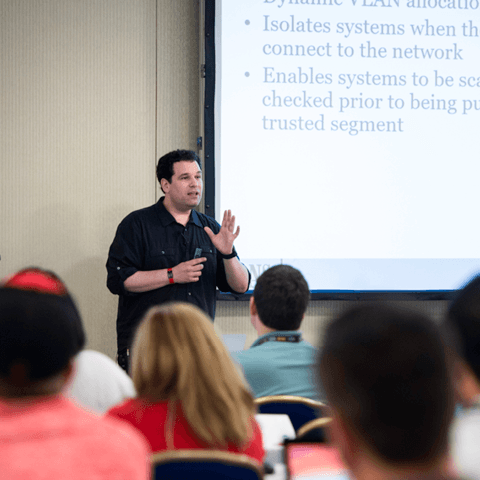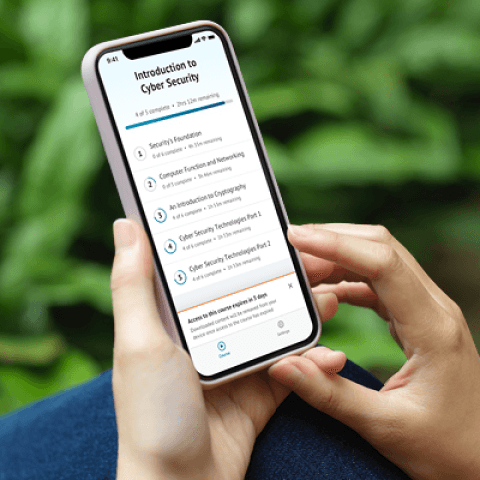SEC595: Applied Data Science and AI/Machine Learning for Cybersecurity Professionals


Experience SANS training through course previews.
Learn MoreLet us help.
Contact usBecome a member for instant access to our free resources.
Sign UpWe're here to help.
Contact Us
Apply your credits to renew your certifications
Train at your own pace from wherever you are
Apply what you learn with hands-on exercises and labs
Build your cybersecurity confidence from the ground up. This SANS Foundations course gives you the essential skills, tools, and mindset to launch your journey into the world of cyber.
The security labs were my personal favorite as the skills attained through those helped me land a role as a vulnerability analyst in the information security office!
SANS Foundations is the perfect starting point for anyone new to cybersecurity or looking to build a solid technical base. Designed with beginners in mind, this cybersecurity foundations course covers essential concepts like operating systems, networking, security principles, and hands-on skills with tools used by professionals in the field. Whether you're exploring a new career, supporting security teams, or preparing for advanced training, SEC275 provides the critical knowledge needed to understand and engage with cybersecurity. With engaging content, practical labs, and expert instruction, you’ll gain the confidence and capability to take your next step in the cyber world. No prior experience required just curiosity and a drive to learn. Preview the course for free.


James has spent the past 20 years of his life chasing cybercriminals around the Internet and, as a self-professed “massive geek”, has been involved in most cyber security disciplines.
Read more about James LyneExplore the course syllabus below to view the full range of topics covered in SEC275: Foundations: Computers, Technology, & Security.
Thirteen self-paced online modules comprise SEC275: Foundations: Computers, Technology and Security™, covering a range of cybersecurity topics such as Linux, networking fundamentals, programming, servers, SQL, Windows, and more.
Delivers technical support to users, helping them resolve issues with client hardware/software according to organizational service processes.
Explore learning pathResponsible for setting up and maintaining a system or specific components of a system in adherence with organizational security policies and procedures. Includes hardware and software installation, configuration, and updates; user account management; backup and recovery management; and security control implementation.
Explore learning pathOversees full lifecycle of information systems from design through evaluation, ensuring alignment with functional and operational goals.
Explore learning pathPlans and designs security-by-design solutions (infrastructures, systems, assets, software, hardware and services) and cybersecurity controls.
Explore learning pathResponsible for planning, implementing, and operating network services and systems, including hardware and virtual environments.
Explore learning pathExecutes software engineering across lifecycles, managing risks, requirements, design, and testing using modern architectures and methodologies.
Explore learning pathOversees a portfolio of IT capabilities aligned to enterprise goals, prioritizing needs, solutions, and value delivery to the organization.
Explore learning pathDeploys, configures, maintains infrastructure software and hardware to support secure and effective IT operations across organizational systems.
Explore learning pathAdd a GIAC certification attempt and receive free two practice tests. View pricing in the info icons below.
Add 6 months of hands-on skills practice. Add to your cart when purchasing your course.
Despite having a senior level security role, SANS Foundations was a fantastic way to brush up on important concepts that help me better fulfil my job duties.
I found that the SANS Foundation course is the best place to start no matter you have IT background or not. There are loads of examples from beginner to intermediate level.
The security labs were my personal favorite as the skills attained through those helped me land a role as a vulnerability analyst in the information security office!
The hands-on labs allowed me to apply theoretical knowledge and improve problem-solving skills. The course stressed the importance of analytical thinking and effective response to security incidents, guiding my approach in real-world scenarios.

Get feedback from the world’s best cybersecurity experts and instructors

Choose how you want to learn - online, on demand, or at our live in-person training events

Get access to our range of industry-leading courses and resources